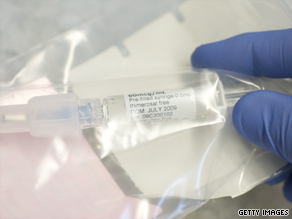Riding the rails between downtown and the airport is becoming a reality for more U.S. travelers.
With their roadways jammed with cars and shuttles, a growing number of domestic airports are building or have plans for a rail link that will connect passengers from the terminals to regional metro-rail systems, allowing road warriors and vacationers to ditch their cars.
"There is a consensus building that this is a desirable piece of overall strategy to deal with ground transportation challenges," says Matthew Coogan, director of New England Transportation Institute who has written extensively about the subject.
Direct rail connections to Seattle-Tacoma and Dallas Love Field are expected to open later this year. Other large airports with an approved rail project that will be completed in the next few years: Salt Lake City, Phoenix Sky Harbor, Miami, Dallas/Fort Worth and Oakland.
Several other airports, including Denver, Washington Dulles and Los Angeles, have similar plans, but their projects are years from completion.
Airport rail links have long been popular in Europe and Asia. But only eight of the 20 largest U.S. airports, based on 2008 boardings, have rail service that drops passengers off within walking distance of the terminals: Atlanta, Chicago O'Hare, New YorkJohn F. Kennedy, San Francisco, Newark, Minneapolis, Boston and Philadelphia.
But a confluence of operational and economic factors have pushed the airport rail agenda forward in recent years despite opposition from taxi and bus proponents and fiscally conservative lawmakers.
With air traffic rising rapidly in recent years, airports are learning that simply building more parking lots and enlarging roadways aren't sustainable practices, Coogan says. Many U.S. airports have also embraced the green movement, budgeting more for programs that reduce their carbon footprint.
Greater availability of federal funding sources for airport rail is helping the cause. After a rigorous application process, Phoenix Sky Harbor persuaded the Federal Aviation Administration to let it use the passenger facility charge — a fee added to air tickets — to partially fund its rail project. Oakland received $70 million for its rail project from the federal economic stimulus package this year.
Popular rail services
Experts cite Washington, D.C.'s metro service to Washington Reagan National, Bay Area Rapid Transit's (BART) connection to San Francisco International and New York JFK's 8-mile AirTrain that links to the local subway as the most heavily used and popular systems in the USA. They also feed into established and far-reaching regional metro systems that are easy to use for travelers who forgo rental cars. Since it opened in 2003, AirTrain ridership has grown steadily, and about 4.75 million paid to ride the JFK train in 2008, according to the Port Authority of New York & New Jersey.
"When I fly to SFO, I always take the BART from the airport to my office in downtown San Francisco, and I love it," says business traveler Marc Belsher, a health care technology consultant. "It is inexpensive, reliable, relatively fast and ultraconvenient. It is the natural choice for me, especially in this economy."
Cleveland, St. Louis and Portland, Ore., run smaller rail systems that also provide direct-to-airport service. The number of travelers using Portland Metro's service to the airport grew 7.7% in 2008, says Steve Schreiber, aviation director for Portland International.
Still, airport-rail ridership in the USA is woefully low compared with other countries, says Andrew Sharp, director general of the U.K.-based International Air Rail Organisation. In many European and Asian airports, 20% to 30% of travelers get to and from the airport using rail. In the USA, ridership typically ranges from 2% to 5%, he says.
Airports actively pursuing a rail connection have several options:
•Add to existing systems.Seattle's Sound Transit, a voter-approved initiative passed in the late 1990s to create a regional light-rail system, is close to finishing its latest line. The Central Link, a 16-mile line running between downtown Seattle and Sea-Tac airport, will launch later this year. Its airport station is scheduled to open in December.
About a decade ago, Salt Lake City had no public rail. The Utah Transit Authority has since built a system that covers about 150 miles. A 5-mile downtown-to-airport connection is under construction and scheduled to open in 2012, says Michael Allegra of UTA. He expects about 6,000 riders daily when it opens.
One of the largest construction projects in the nation's capital is a 23-mile extension of the region's Metro to Washington Dulles. The new line will also serve the Tysons Corner area, Virginia's largest employment center. The completion date hasn't been determined.
•People-mover rail. Some airports have a metro station nearby but not within walking distance. To close the gap, they are looking to automated people-mover trains as a solution. Because people-movers typically run within airport grounds, airport authorities can tap funding sources that are available only for airport projects.
Phoenix Sky Harbor will use passenger facility charges to partially fund its Sky Train, a people-mover that will open in 2012 and connect to a nearby light-rail station. One airport station will contain an enclosed and air-conditioned moving walkway that will take travelers directly to the terminals.
BART this month approved funding for a 3.2-mile elevated people-mover that will connect BART's Coliseum station to Oakland International, replacing the current bus connection. It's scheduled to enter service in 2013. About 4,300 Bay Area passengers a day are expected.
Meanwhile, Miami-Dade Transit broke ground last week on a people-mover extension from the Earlington Heights station — the nearest stop to Miami International— to a ground transportation hub that's being built next to the airport. The rail link and the ground transportation hub are both expected to be completed in 2012.
Ongoing debates
Like most large construction projects, airport rail proposals face stiff headwinds. Opponents challenge funding sources and new taxes and cite preferences for cars and buses. But the central argument in most debates has centered around ridership, specifically whether airports have enough demand to justify millions in cost.
BART's connection to SFO, completed in 2003, has yet to reach BART's initial ridership forecast and is still not profitable. Prior to construction, BART projected there would be 17,800 average daily boardings to and from the airport by the year 2010. As of this month, SFO ridership was at about 11,000.
Frank Sterling and Juliet Ellis, activists in the Bay Area, also questioned BART's plans to spend $500 million for Oakland International's people-mover and its decision to charge $6 for the service vs. $3 for the current shuttle bus.
"The proposal to charge double that for the new connector might drive away customers, unless it delivers twice the value," they wrote in a recent newspaper commentary, "Can East Bay residents afford this?"
These are appropriate debates, Coogan says. Some cities are better off sticking to buses, he says. For example, LAX's FlyAway Bus, which provides non-stop rides to various neighborhoods in Southern California, is more convenient for many travelers than the metro.
For some cities, it'd be wiser to spend scarce funds for extending metro to public transportation-friendly suburbs before considering airports, Coogan adds.
"How often does a person go to work? And how often does a person go to Paris in a year?" he says.
In Seattle, where light-rail coverage is still growing, expectations are modest, with 3,000 riders a day expected at the airport station initially. "We're at the beginning. It's a step-by-step process," says Ron Lewis of Sound Transit. "But there are other neighborhoods that will be served by the line along 15 miles."
By Roger Yu, USA TODAY









